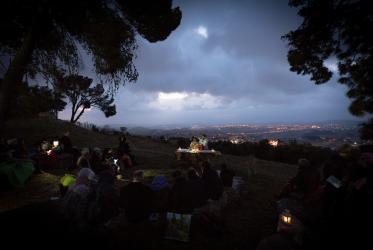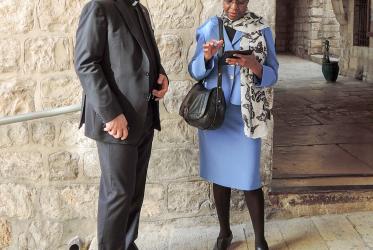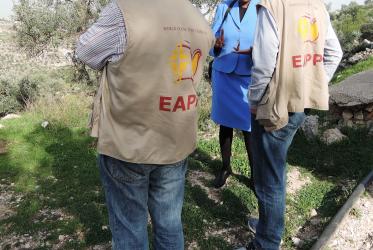Displaying 1 - 14 of 14
Dr Saïd Ailabouni: God is on the side of rejected, oppressed, occupied
12 September 2019
Owe Boersma will strive for equilibrium as EAPPI coordinator
18 August 2016
Beirut workshop fosters cooperation on diakonia
14 June 2016
Peace, health and education are Gaza's future
24 May 2016
A presence to accompany vulnerable communities
31 March 2015
Pilgrimage of justice and peace gives vision for WCC programmes
22 November 2014









